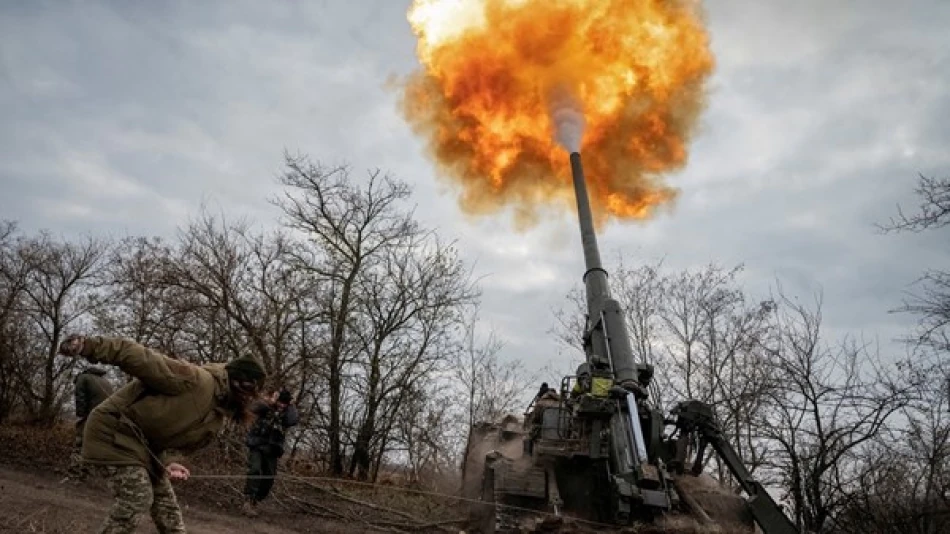
Russia Accelerates Offensive, Pushing Deeper into Ukraine
Russia Claims Accelerated Territorial Gains as Military Strategy Shifts to Infrastructure Warfare
Russian Defense Minister Andrei Belousov announced Friday that Moscow's forces have nearly doubled their territorial acquisition rate in Ukraine, claiming control of 600-700 square kilometers monthly compared to 300-400 at the year's start. The statement coincides with Russia's intensified campaign targeting Ukraine's military-industrial infrastructure, marking a strategic pivot that could reshape the conflict's trajectory.
Territorial Gains Signal Strategic Momentum
The reported acceleration in territorial control represents a significant shift from the largely static front lines that characterized much of 2023. If accurate, Russia's claimed monthly gains would translate to roughly 8,400 square kilometers annually—an area comparable to Cyprus or Lebanon.
This uptick coincides with Ukraine's ongoing challenges in mobilization and Western military aid delays that plagued the first half of 2024. The timing suggests Russia may be capitalizing on a window of opportunity before Ukraine's defensive capabilities are reinforced.
Infrastructure Warfare Takes Center Stage
Systematic Targeting Campaign
Belousov detailed Russia's systematic approach to degrading Ukraine's war-making capacity, citing 35 major airstrikes against 146 "critically important" targets throughout 2024. This represents a more focused strategy compared to the broader infrastructure attacks of winter 2022-2023, which primarily targeted civilian energy systems.
The claimed damage to 62% of Ukraine's military-industrial complex infrastructure marks a deliberate shift toward crippling long-term defensive capabilities rather than immediate battlefield gains alone.
Drone Warfare Evolution
Russia's emphasis on targeting drone production facilities and logistics centers reflects the conflict's evolution into a technology-driven war of attrition. Long-range Ukrainian drone strikes on Russian territory have proven increasingly effective, forcing Moscow to prioritize disrupting this capability at its source.
Belousov's acknowledgment that Russia needs to accelerate drone operator training reveals both the technology's growing importance and potential gaps in Russian capabilities—a rare admission of military shortcomings from Moscow's defense leadership.
Strategic Implications for 2025
The dual focus on territorial advancement and infrastructure degradation suggests Russia is positioning for either escalated military pressure or potential negotiations from a position of strength. By systematically weakening Ukraine's industrial base while expanding territorial control, Moscow appears to be creating facts on the ground that could influence any future diplomatic settlement.
However, these claims come as Ukraine receives enhanced Western air defense systems and long-range strike capabilities, potentially limiting Russia's ability to maintain this operational tempo. The effectiveness of Russia's infrastructure campaign will likely determine whether the reported territorial gains can be sustained through 2025.
The emphasis on drone warfare capabilities from both sides indicates this technology will remain central to the conflict's evolution, with production capacity and operator training becoming as critical as traditional military metrics.
Most Viewed News

 Layla Al Mansoori
Layla Al Mansoori






